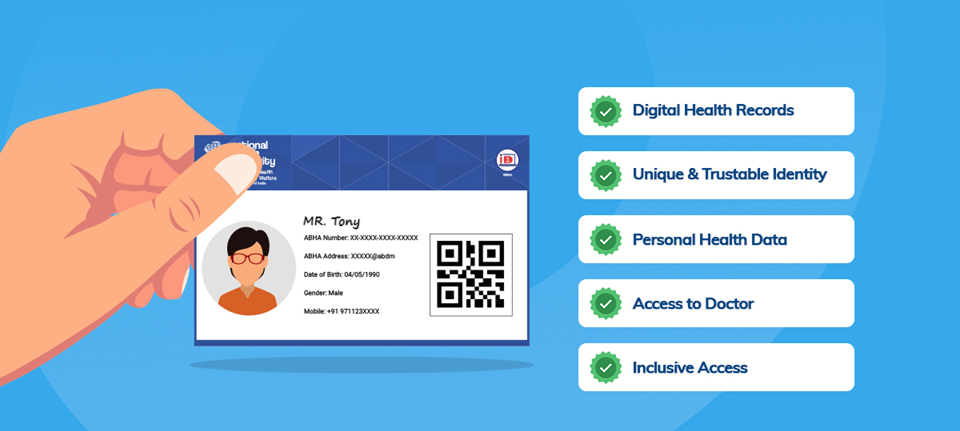India is embracing digital innovation in healthcare, and the Health ID Card is at the forefront of this transformation. Introduced under the Ayushman Bharat Digital Mission (ABDM), the Health ID Card is a revolutionary initiative aimed at creating a seamless and secure digital health ecosystem. Let’s explore what the Health ID Card is, how it works, and the benefits it offers to individuals and the healthcare system.
What is a Health ID Card?
The Health ID Card is a unique, 14-digit digital identifier assigned to individuals in India. It is designed to store and manage an individual’s health records digitally, making healthcare services more efficient and accessible. The card is voluntary and serves as a single point of access for your medical history, test reports, prescriptions, and other health-related information.
Key Features of the Health ID Card
- Unique Health Identifier (UHID): Each individual receives a 14-digit number that acts as a universal health identifier across India.
- Digital Health Records: Your medical history is stored digitally and can be accessed anytime, anywhere.
- Voluntary Enrollment: Signing up for a Health ID Card is optional, ensuring freedom of choice.
- Privacy and Security: The system is built with strict data protection protocols to ensure that your health information remains confidential and secure.
- Interoperability: The Health ID works across different healthcare providers, allowing seamless sharing of medical records.
How to Create a Health ID Card?
Creating a Health ID Card is simple and can be done online:
- Visit the Official Portal: Go to the Ayushman Bharat Digital Mission website or use the ABDM mobile app.
- Provide Basic Details: Enter your Aadhaar number or mobile number for identity verification.
- Generate Your Health ID: After verification, you will receive a unique Health ID number.
- Link Your Records: You can link your existing health records to your Health ID for easy access.
Benefits of the Health ID Card
- Convenient Access to Medical Records: No more carrying physical files; all your records are digitally accessible.
- Time-Saving: Doctors can quickly access your medical history, improving diagnosis and treatment efficiency.
- Continuity of Care: Whether you move cities or switch doctors, your health records travel with you.
- Empowered Healthcare Decisions: The system enables individuals to manage and control their health data.
- Streamlined Healthcare Services: Hospitals and clinics can streamline processes, reducing waiting times and paperwork.
Who Can Use the Health ID Card?
The Health ID Card is available to:
- Individuals seeking a unified digital health record.
- Healthcare providers looking to enhance patient care.
- Hospitals, clinics, and diagnostic centers aiming for smoother record management.
Is the Health ID Card Secure?
Yes, the Health ID Card system is designed with robust security measures. User consent is required to access or share health records, ensuring data remains confidential. The ABDM framework complies with stringent data protection regulations to safeguard users’ personal and health information.
The Future of Healthcare in India
The Health ID Card is a significant step towards creating a digitally empowered healthcare ecosystem in India. By simplifying access to health records and ensuring continuity of care, it bridges the gap between technology and healthcare. As more people adopt the system, it has the potential to transform the way healthcare services are delivered across the nation.
Conclusion
The Health ID Card is more than just a digital identifier—it’s a tool that empowers individuals and healthcare providers alike. With its focus on accessibility, efficiency, and security, it represents the future of healthcare in India. If you’re looking to take charge of your health, creating a Health ID Card could be your first step toward a smarter, more connected healthcare experience.



Leave a Reply